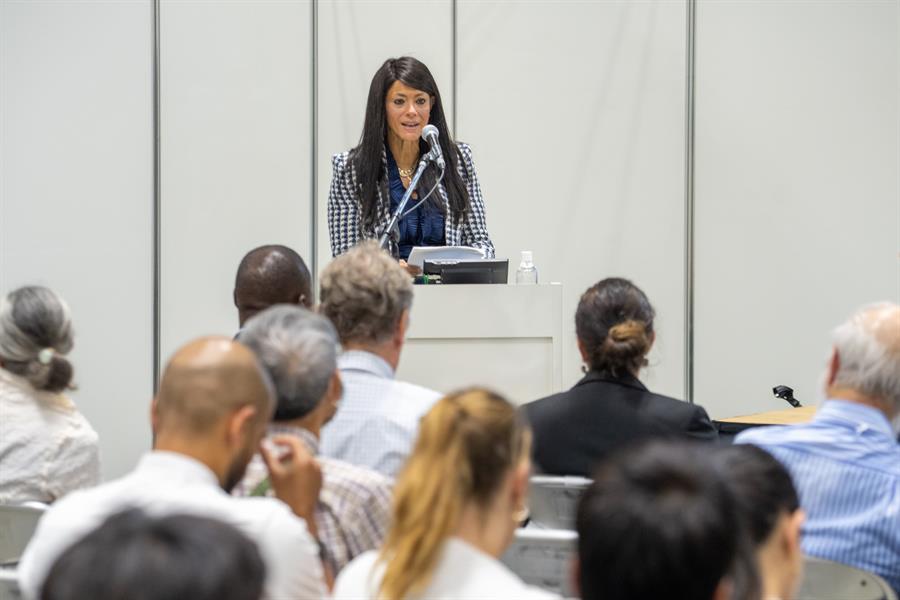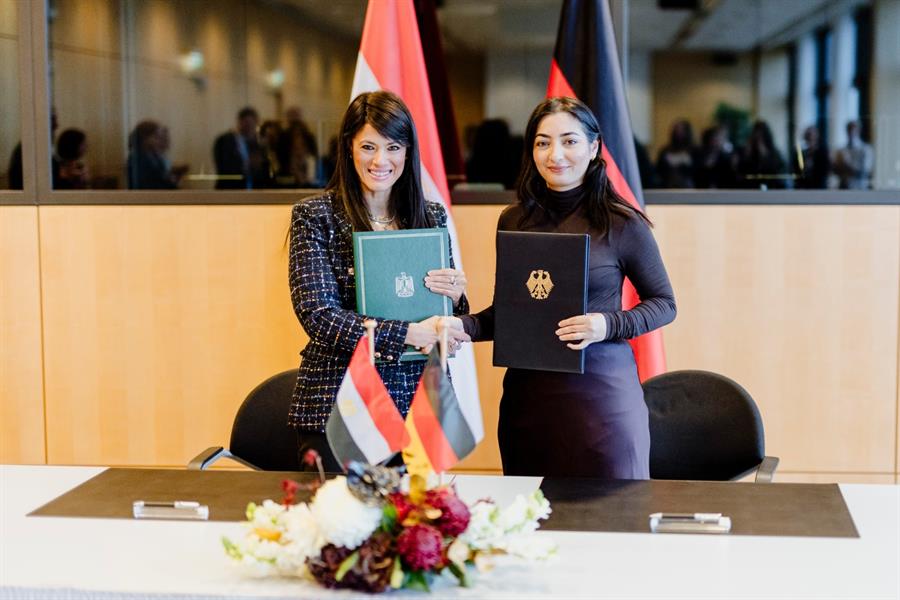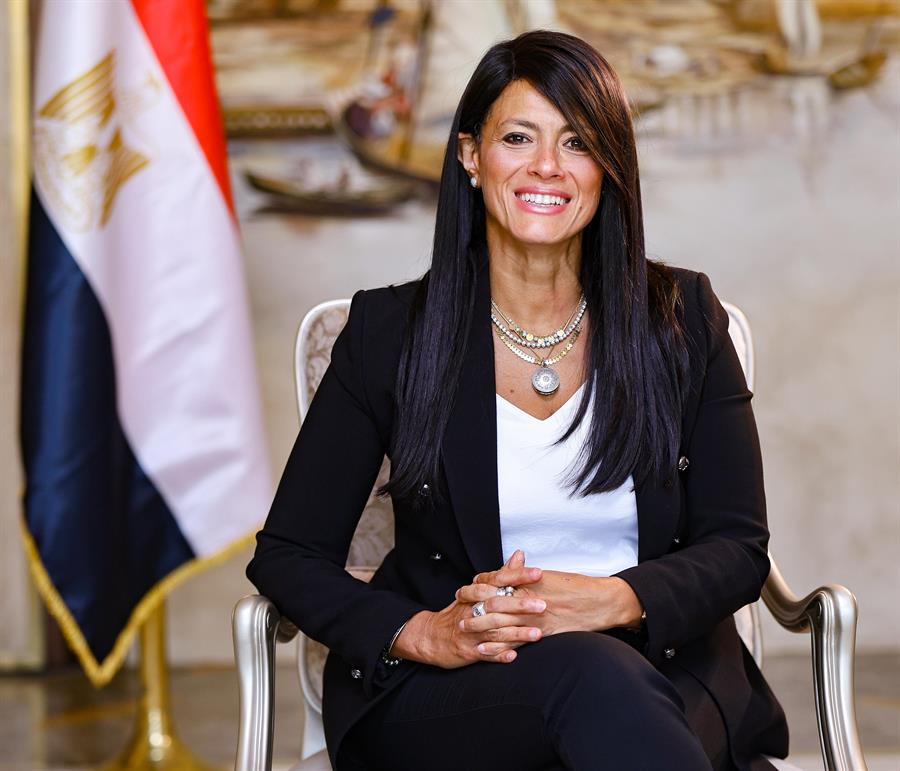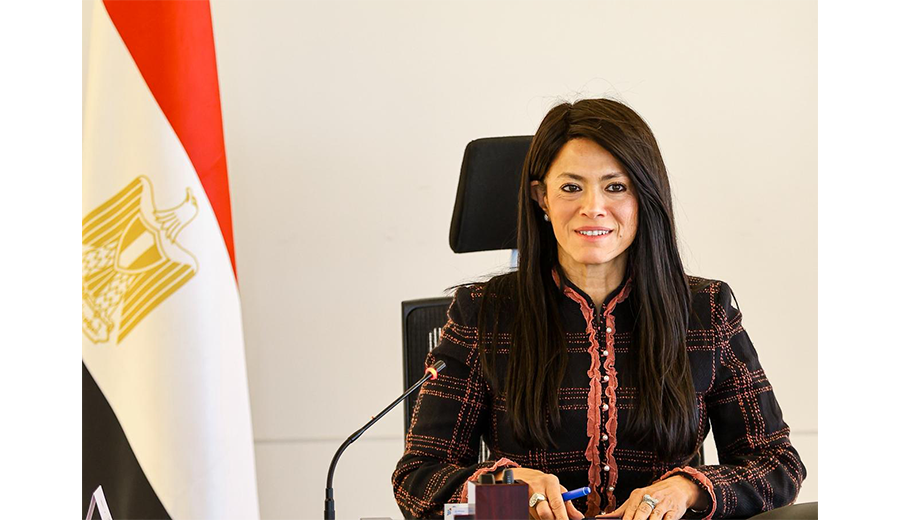Dr. Rania Al-Mashat: Presidential directives to give utmost importance to artificial intelligence strategies and harness modern technologies to advance economic development efforts

21 August 2025
During an event on governance in the digital transformation era, held as part of TICAD 9 in Tokyo, Japan
Dr. Rania Al-Mashat: Presidential directives to give utmost importance to artificial intelligence strategies and harness modern technologies to advance economic development efforts
Al-Mashat: Africa has enormous opportunities to leverage modern technologies in achieving its development agenda.
Egypt welcomes triangular cooperation with Japan and African partners to strengthen AI governance and turn it into a driving force for development.
The Ministerial Group on Entrepreneurship works to empower startups in the fields of artificial intelligence and innovation.
The world needs a comprehensive and flexible framework for AI governance built on ethical principles, transparency, accountability, and fairness.
H.E. Dr. Rania Al-Mashat, Minister of Planning, Economic
Development, and International Cooperation, participated in an event organized
by the United Nations University (UNU) as part of the Tokyo International
Conference on African Development (TICAD 9), on “Governance in the Digital Era:
Lessons for Africa.” The event was attended by a number of ministers, Japanese
government officials, representatives of African nations, and the United
Nations.
In her speech, Dr. Al-Mashat emphasized the importance of
this event organized by the UNU, particularly given the transformation the
world is witnessing, where digital technologies, foremost among them artificial
intelligence, are no longer peripheral tools but core drivers in addressing
complex and interlinked development challenges. From strengthening healthcare
and education services, to supporting climate change adaptation, ensuring food
security, and advancing inclusive economic growth, technology has become a
determining factor in how countries can leapfrog stages of development.
However, these immense possibilities make it imperative to
build strong governance frameworks that ensure innovations serve humanity in a
fair and sustainable way.
H.E. stressed that artificial intelligence has become a
driving force reshaping development models and opening new horizons for growth,
while simultaneously posing profound challenges that require effective
governance and international cooperation. She pointed out that Africa possesses
vast potential, legitimate aspirations, and a collective responsibility to
shape an African model for AI governance. With more than 60% of its population
under the age of 25 and a rapidly expanding digital economy expected to add
over $180 billion to the continent’s GDP, Africa enjoys a unique opportunity to
harness AI as a driver of inclusive and sustainable development.
The Minister of Planning, Economic Development, and
International Cooperation referred to presidential directives mandating the
development of clear strategies to harness AI and strengthen research and
development efforts. She highlighted that Egypt recognized the importance of AI
not only as a technical tool but also as a strategic catalyst for development,
digital sovereignty, and social justice. From this standpoint, the Egyptian
government has taken pioneering steps in AI governance and capacity-building to
keep pace with the rapid acceleration of this technology, beginning with the
establishment of the National Council for Artificial Intelligence in 2019, the
Applied Innovation Center, the launch of the Egyptian Charter for Responsible
AI, and most recently the second phase of the National AI Strategy, launched by
H.E. President Abdel Fattah El-Sisi at the start of this year.
She noted that the National AI Strategy focuses on
integrating AI technologies into government services, strengthening
public-private partnerships, prioritizing scientific research across economic
and service sectors, and also preserving linguistic heritage by ensuring wider
accessibility of technology in the Arabic language.
At the same time, she explained that Egypt is working to
strengthen the startup ecosystem to enable innovators and entrepreneurs to
apply emerging technologies, especially AI, in vital sectors. Recognizing the
strategic importance of this sector for Egypt’s future growth, the government
launched the Ministerial Group on Entrepreneurship to coordinate policies,
stimulate innovation, and ensure startups receive the support needed to expand
and compete globally. In parallel, Egypt is scaling up AI training programs to
prepare a new generation of leaders capable of deploying digital technologies
responsibly and effectively.
On the continental level, she added that Egypt has worked to
transfer its extensive expertise in this vital field to serve other African
nations, promoting governance principles and responsible use of AI technologies
across the continent. This is aimed at harnessing this transformative
technology to achieve development goals and address economic, social, and security
challenges. These efforts have taken place in the framework of South-South and
Triangular Cooperation, reflecting Egypt’s commitment to solidarity, mutual
learning, and the exchange of best practices among developing countries.
She affirmed that Egypt played a pioneering role in
formulating the African Continental AI Strategy, launched in August 2024, which
focuses on ethical, inclusive, and sustainable AI governance. Egypt also
contributes, representing North Africa, as a member of the African Union Advisory
Group on Artificial Intelligence and its Impact on Peace, Security, and
Governance.
She spoke about the risks associated with AI despite its
many benefits. According to the International Labour Organization, up to 25% of
jobs worldwide are expected to be affected by generative AI. The World Economic
Forum’s Global Risks Report 2025 has also identified disinformation and the
spread of misinformation as the greatest global threat over the next two years,
with emerging technologies accelerating their dissemination. This trend reveals
how the erosion of trust and social cohesion could rapidly deepen divisions
within and among nations.
She stressed that without sound governance, these risks,
from job losses to digital disinformation, could undermine trust, exacerbate
inequality, and destabilize societies. For this reason, Egypt firmly believes
that the world needs a comprehensive and flexible framework for AI governance
built on ethical principles, transparency, accountability, and fairness; a
framework that ensures privacy protection and strengthens security.
She noted that the current meeting, held within TICAD 9,
presents genuine opportunities for cooperation and building bridges between
continents, through knowledge-sharing, capacity-building, and joint participation
in shaping AI governance systems that safeguard our values and future. She
emphasized Egypt’s readiness to cooperate with Japan and African partners to
enhance AI governance and transform it into a driving force for achieving
inclusive and sustainable development.









